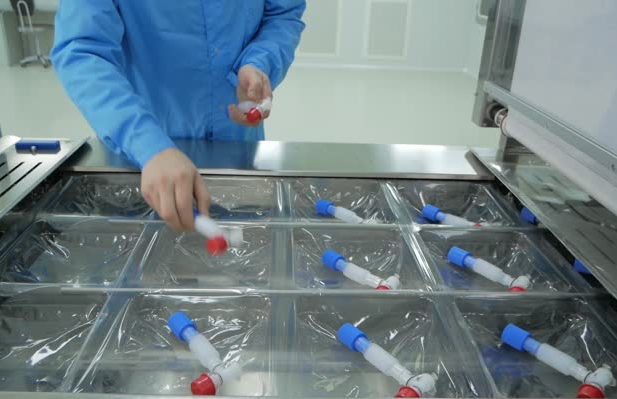
Researchers from DUKE-NUS Medical School and the Singapore General Hospital have shown that T cells can independently prevent viral infections to an extent previously believed to be achievable only by neutralizing antibodies. Their findings, published in Nature Microbiology, challenge the long-standing assumption that antibodies are the primary defense against acute viral diseases, and suggest that future vaccine strategies should also take into account T-cell responses in addition to antibody response to provide broader protection.
“We found that T cells can serve as the first line of defense, not just a supportive element in protecting us from acute viral diseases,” said lead author Ooi Eng Eong, PhD, a professor in the program in emerging infectious diseases at Duke-NUS Medical School. “These findings challenge the current paradigm that antibodies are absolutely vital for protection against acute viral infection.”
The research focused on how T cells might provide protection against viruses without the need for the antibodies that have traditionally been seen as essential for immunity.
Traditionally, vaccines have aimed to generate high levels of neutralizing antibodies, the presence of which typically provides robust protection, with clinical trials and studies typically focusing on antibody levels as a primary measure of immunity. However, this new research shows that T cells, which target infected cells directly rather than neutralizing the virus before infection, can also effectively control viral infection.
For their study, the investigators enrolled 33 healthy adult volunteers, aged 21 to 45, who were given a cross-vaccination regimen using the live-attenuated yellow fever vaccine followed by a challenge 28 days later with a weakened Japanese encephalitis virus—a genetically related virus. The weakened virus strains were not capable of causing a viral infection in the volunteers but would result in mild symptoms and measurable levels of the virus in the blood.
Since the Japanese encephalitis vaccine was constructed using the backbone of the yellow fever vaccine, inoculation with either one of the vaccines generates T cells that are effective against both viruses, but stimulates production of neutralizing antibodies that are ineffective against the virus used in the human challenge study. This allowed the team to assess how well the T-cells worked in controlling the virus independent of the neutralizing antibodies.
The data showed that when the T-cell response was sufficiently strong, it could reduce the virus to undetectable levels in 15% of participants, with no detectable viral RNA or new antibody formation. This suggests that T cells can achieve what has previously been considered sterilizing immunity without the involvement of neutralizing antibodies.
This new research could dramatically change approaches to vaccine development in the future, noted first author Shirin Kalimuddin, an assistant professor and senior consultant at Singapore General Hospital. “We need to rethink how we design and develop vaccines,” “Vaccines that generate high levels of antibodies do not necessarily generate high levels of T cells. Development of vaccines must incorporate the viral components that T cells recognize and react against.”
The researchers believe that vaccines capable of stimulating both T-cell and antibody responses could offer more comprehensive protection, especially as some viruses evolve to escape antibody-mediated immunity.
“By understanding the unique roles T cells play, especially in viruses like yellow fever, dengue, and Zika, all of which are from the same family…we can develop vaccines that target a wider range of viral strains and mutations,” said Patrick Tan, MD, PhD, senior vice-dean for research at Duke-NUS.
The next phase of the research will focus on identifying why some individuals produce stronger T-cell responses following vaccination than others. The researchers aim to develop strategies to enhance T-cell immunity in future vaccine designs.









![Best Weight Loss Supplements [2022-23] New Reports!](https://technologytangle.com/wp-content/uploads/2022/12/p1-1170962-1670840878.png)




